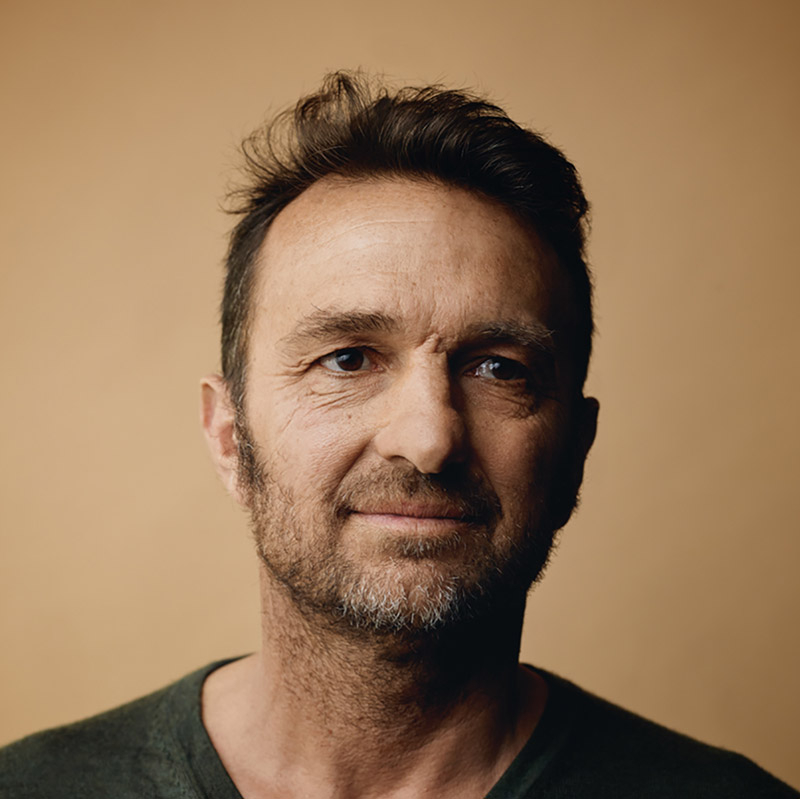04 October 2022
By Tim Baker
There may be no satisfactory answer to the question: Why did I get cancer?
If you are a lifelong smoker with lung cancer, chances are that was a contributing factor. Lengthy court cases have been waged to establish if exposure to the toxic pesticide and known carcinogen Roundup was responsible for the various cancers suffered by gardeners and farmers and others who regularly doused themselves with the stuff.
Genetic predisposition can contribute to the likelihood of breast and prostate cancer, in particular, but is rarely the whole story. One meta-analysis of tens of thousands of cancer cases and hundreds of studies concluded that two thirds of cancer cases were “just bad luck”, random mutations during cell division not attributable to genetics, lifestyle or environment.
When it comes to prostate cancer, a sedentary lifestyle doesn’t help. Nor does a typical western diet, high in processed foods, alcohol, salt, fat and sugar and low in fresh fruit and vegetables. But none of those things alone will ever provide an adequate explanation. Perhaps it is a futile pursuit. Maybe there is no one “reason” you get cancer, no great metaphysical explanation.
The advice of my personal trainer mate Shiike is to call off the search, to move on from why to what, asking not why I got cancer, but instead what I’m going to do about it. And, apparently, what I’m going to do about it is train like a triathlete a couple of mornings a week under Shiike’s merciless tutelage. This isn’t a development I would have forecast for myself in middle age. I’ve always been a bit disdainful of gyms and weights and the types who pump iron and scoff protein powder smoothies. But a dedicated training regime, for the first time in the 30-odd years since I gave up playing suburban footy, proves a revelation. I feel fitter, stronger and research suggests I’m also helping slow the spread of cancer.
The other things I’m going to do are meditate daily, eat well and follow a mainly plant-based diet, minimize stress in my life and try and get good quality sleep. For close readers of this column, you may recognize my handy self-care mantra here. “Just remember to take your M.E.D.S. Meditation. Exercise. Diet. Sleep.” These nare not intended to replace conventional therapies, but to complement them, to help maintain quality of life, mitigate side effects of treatment and, potentially even improve my prognoses. If I tick each of these boxes each day, I figure I’m on the right path and that is as much as I can ask of myself. And if I slip up, I don’t beat myself up. The damage caused by straying from a strict diet, eating an ice cream or having a beer, or lounging in front of Netflix on a rainy afternoon, is probably less than the stress and guilt of self-recrimination. I try to be gentle on myself.
I still sometimes wonder why I got cancer, but it’s more of a benign curiosity than a burning need. What I’m going to do about it has come into clearer focus as time has gone on. I’m going to take on board my oncologist’s advice diligently, but I’m also going to gently push back when things don’t make sense to me, ask questions, seek second or even third opinions, have a two-way conversation about how we can best balance effective management of my health with quality of life.
And I’m going to keep trying to find ways to live a full, rich, meaningful life, despite the spirit-sapping challenges. One more thing I’m going to do is share what I learn along the way, not in terms of offering unqualified medical advice, but in passing on the PC life hacks I pick up. And I’d love to hear yours. Live, learn and pass it on, my friends.
About the Author

Tim Baker is an award-winning author, journalist and storyteller specialising in surfing history and culture, working across a wide variety of media from books and magazines to film, video, and theatre. Some of his most notable books include “Occy”, a national bestseller and chosen by the Australia Council as one of “50 Books You can’t Put Down” in 2008, and “The Rip Curl Story” which documents the rise of the iconic Australian surf brand to mark its 50th anniversary in 2019. Tim is a former editor of Tracks and Surfing Life magazines. He has twice won the Surfing Australia Hall of Fame Culture Award.
Tim was diagnosed with stage 4, metastatic prostate cancer in 2015 with a Gleason score 9. He was told he had just five years of reasonable health left, but seven years on, at 57, he’s still surfing, writing, and enjoying being a dad. His latest book, Patting The Shark, also documents his cancer journey and will be published in August. Tim will be sharing weekly insights into his journey to help other men who have also been impacted by prostate cancer.
